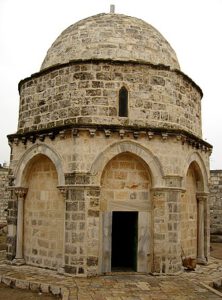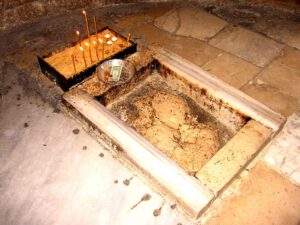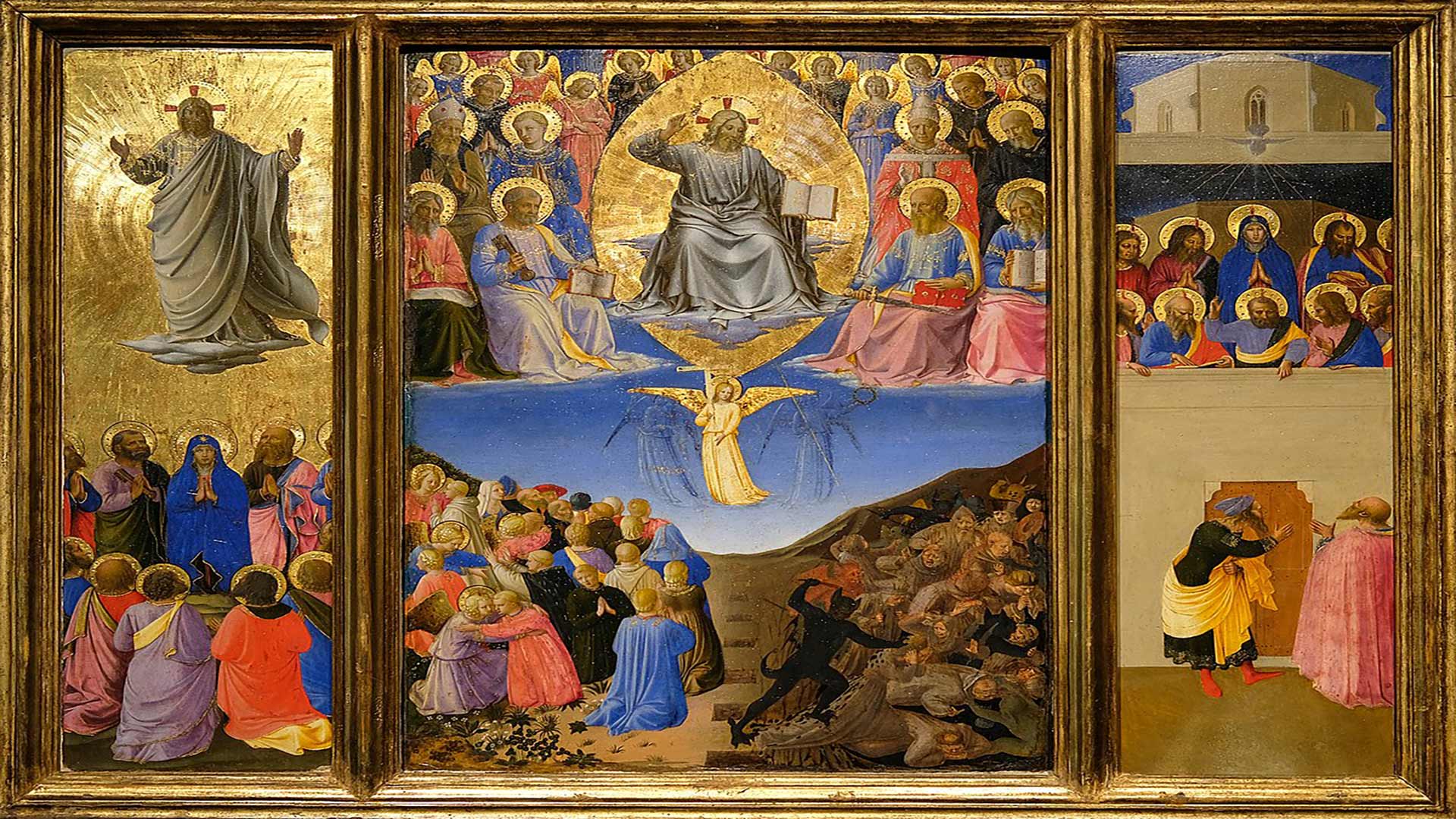The Real Ascension Story
Who would not believe a supernatural occurrence like the Ascension just because he has not witnessed even a pale resemblance of it? While today’s First Reading (Acts 1: 1-11) and Gospel (Mk 16: 15-20) describe the physical event, the Second Reading (Eph 1: 17-23) offers a theological interpretation. The bottomline is that in time those believing in the Lord of the Ascension will also enjoy the same experience.
We must bear in mind that everything about Jesus was supernatural – right from His joyful Birth to His luminous Transfiguration, sorrowful Passion and Death and glorious Resurrection. Unprecedented events they surely were, but always witnessed by many and duly recorded for posterity. In fact, in stitching together details from the evangelists and other writers, we note that differences in minor details make their narratives complementary, not contradictory. So, modern men and women ought not be sceptical but ever more trusting and believing.
Forty days in Galilee
The Ascension came about at the end of Jesus’ forty-day stay in Galilee following His Resurrection. In keeping with a prior promise, Jesus opted for that region (about 125 km away from Jerusalem) only to avoid a potential clash with the Sanhedrin. The Jewish supreme council was waiting to pounce on the newborn Church that was proclaiming their Risen Lord from the rooftops.
How did Jesus spend those forty days? He appeared several times to the Apostles, ‘in ways that proved beyond doubt that He was alive’. Once, at the iconic Lake Gennesaret, he surprised them with a miraculous haul. He was thus a provider of material goods to His inner circle whom the traitor Judas Iscariot had robbed of their kitty. But more importantly, Jesus was a provider of spiritual food. Taking the Eleven aside, He would decipher the hidden meanings of His public discourses.

Jesus also took care to set up a second line of leaders. By asking Peter to feed His lambs (beginners in the faith) and sheep (those more mature in the faith), He virtually handed over His baton to the future Pope. Furthermore, to meet His disciples at once, he bade them gather at a mountain nearby. Was it here that Jesus once appeared to more than five hundred (probably from across Jerusalem, Judea and Galilee)? If so, this could well be regarded as the first Council of Christendom!
Were they upbeat about meeting Jesus? When He appeared in flesh and blood, the Apostles fell on their feet in worship, whereas some others doubted. Nonetheless, Jesus moved forward, commanding them to go and teach all nations, baptising in the name of the Father and of the Son and of the Holy Spirit. ‘Teach them to keep all things that I have commanded you, and lo! I am with you all days, even to the consummation of the ages!’ he assured them.
When the day of his departure was close, he met with the Apostles in Jerusalem. They were probably preparing for the Shavuot[1]. There, at His last meal together, He instructed them not to leave the city of David until they had received the Holy Spirit. He showed how the references to Him in the Scriptures – in the law of Moses, in the prophets and in the Psalms – were unfolding.
Then, Jesus rose up and led them to the Mount of Olives. The Apostles followed enthusiastically, believing that He was going to restore the political dominion of Israel. Alas, the more Jesus spoke to them of Heaven, the more they dreamt of life on earth! Our Lord retorted: ‘It is not for you to know the times and seasons which the Father has fixed by His authority. Enough for you to know that the Holy Spirit will come upon you, and you will receive strength from Him; you are to be My witnesses in Jerusalem and throughout Judea, in Samaria, yes, and to the end of the world.’
How ashamed the Apostles must have been for broaching inanities! They walked on in silence, until they came to the top of the hill. There, Jesus lifted up His hands to bless the Apostles. And while He did so, He was seen rising body and soul above the hilltops and fading into the firmament. Tradition has consecrated this site as the Mount of Ascension and Christian piety has memorialised the event by erecting a basilica over the site. An octagonal structure thereabouts, now used as an oratory, encloses the stone said to bear the imprint of the feet of Christ.[2]

Our Ascension
Needless to say, the Apostles were awestruck. Two angels in shiny white garments addressed them: ‘Galileans, why are you standing here looking up at the sky? He who has been taken from you into heaven will come back in the same way that you saw Him go to Heaven.’ So, they went back full of joy to Jerusalem, praying, praising and blessing God.
What about us? What does the Ascension mean to us today? In one of his Ascension homilies, Pope John Paul II said: ‘In the Scripture readings, the whole significance of Christ’s Ascension is summarised for us. The richness of this mystery is spelled out in two statements: Jesus gave instructions, and then Jesus took his place.’[3]
Jesus had instructed the Apostles to speak explicitly about the Kingdom of God and about salvation. The early Church clearly understood the instructions and the missionary era began and will not end until the same Jesus, who went up to heaven, returns. His words are a treasure for the Church to guard and to proclaim. In the words of thenow canonised Pontiff, ‘Our greatest challenge is to be faithful to the instructions of the Lord Jesus.'
About Jesus taking His place at God’s right hand, the Pope quotes his predecessor Leo the Great, who once remarked that ‘the glory of the Head became the hope of the body.’ That is to say, from His throne of glory, Jesus sends out to the Church a message of hope and a call to holiness. ‘The Church may indeed experience difficulties, the Gospel may suffer setbacks, but because Jesus is at the right-hand of the Father the Church will never know defeat. Christ’s victory is ours.’
Jesus is no longer physically present on earth but He is eternally alive and in our midst through the Holy Spirit. Thanks to Him, Heaven and Earth have drawn closer, such that ‘the efficacy of Christ’s Ascension touches all of us in the concrete reality of our daily lives.’ Our Ascended Lord participates in our toils and sufferings. He who entered the world through the Incarnation and returned to the Father through His Ascension wishes to save us for eternity. His Ascension is a prelude to the ascension of believing humankind. That’s the ultimate Ascension Story.
[1] The single most important event in Israel’s history, commemorating the handing of the Torah, or Pentateuch, to Moses at Mount Sinai.
